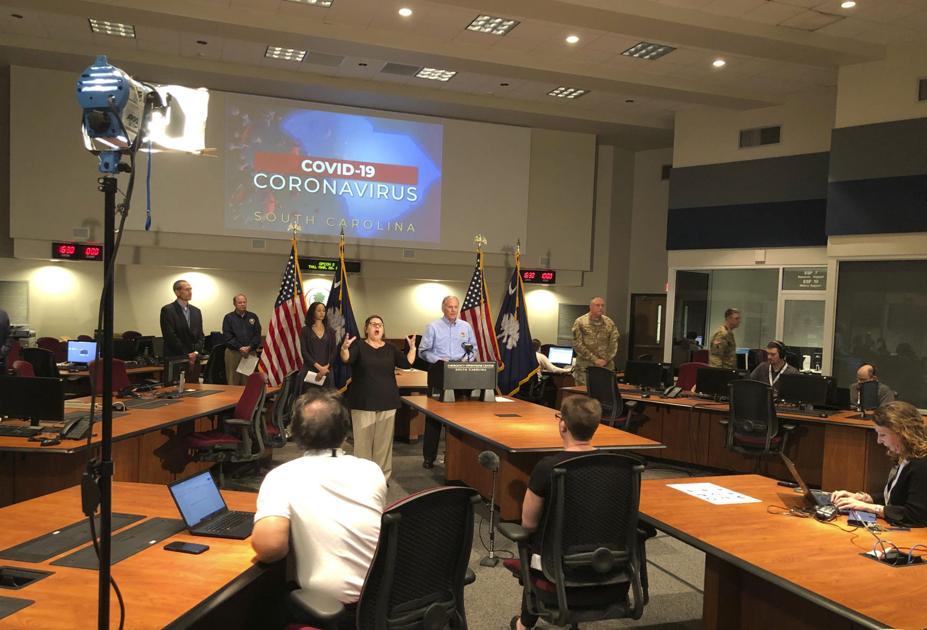Suppose that everyone you see is infected with the coronavirus.
If you really need to leave the house, keep your distance from others. And limit where and how often you go.
Do not touch anything that is not needed outside the home. Do not touch your face unless you have just washed your hands.
Suppose you are one of many people with COVID-19 without symptoms. Coughs in the elbow, not the hands. If you don’t feel well, stay home.
If you feel good, but don’t have to leave at all, stay home. Stay at home. Stay at home. As the highway signs you shouldn’t see much, say: “Save lives now. Stay at home. “
We have already memorized the litany of precautions against conoravirus.
If we were all responsible adults who do not imagine that bad things cannot happen to us or that scenarios of disgrace and sadness never materialize, we would not need the government to order us to follow them and make it difficult to disobey. When we first saw the spread of COVID-19 by the community, we would have strictly limited our contact. With everyone.
And some of us did.

Professional and university sports leagues led the way, with no one in the government even implying that it was necessary. For weeks, companies have been telling their employees to work remotely. Where this was not an option, they ordered social distance; today, outliers are companies that do not guarantee the protection of their employees.
People began to limit their visits to restaurants, postponing dental appointments, skipping the theater and ordering supplies for home online. Churches have changed their worship services online. The gyms took a break. Department stores closed. Office supply stores closed. Not all companies, churches or individuals, but many. And without a single government order.
Unfortunately, not everyone acts responsibly. Therefore, the government had to intervene, to limit our activities more than would be necessary, in order to protect the least cautious of themselves and to protect all of us from them.

Governor Henry McMaster reasonably took an incremental approach to the coronavirus pandemic – first by closing schools, then bars and restaurants and then empowering the police to separate groups of three or more – which he hoped would be sufficient to decrease the rate of infection and protect our hospitals from being overloaded. After another weekend when people packed the coast, he closed public access to beaches, lakes and rivers on Monday. On Tuesday, he ordered the closure of recreational, sporting and entertainment venues, as well as personal services companies of close contact, such as barber shops and tanning salons.
The governor has yet to issue a “stay at home” order that many people claim. But the practical effect of home stay decrees in Charleston, Columbia and Mount Pleasant is unlikely to be much different than your last order closing a set of specific businesses and locations.
Local laws allow people to leave their homes for a walk or other individual recreational activities, to go to the supermarket, drugstore, liquor store, hardware or building supply store, to a bank or a lawyer’s office, to buy one. car or a house, to get food in a restaurant. In other words, they don’t really require anyone to stay home; they just limit the places they can go – at a time when restaurants and bars are already outside state limits, and more and more retail stores that McMaster would allow to remain open are already closed.

We can debate whether the governor closed too little – or even if Charleston exempted too much from closing. We don’t want to impose restrictions so draconian that people refuse to obey them, but we also don’t want to do less than is necessary to make people understand that we are facing a serious threat.
But this is a matter of degree in a question that has no clear answer, as people in our state, nation and world struggle to find the best way to stop this pandemic. And it is a sign of the incredible difficulty inherent in trying to slow the spread of a dangerous disease without stifling the economy that each of us depends on.
The good news is that interstate traffic has decreased by two-thirds, and some urban and suburban streets are a little busier than on Christmas Eve. So, whether they are ideal or not, state orders and urgencies and local laws are having the desired effect of convincing more and more people to stay at home, which is our best tool for delaying the spread of the virus. It is something we must all continue to do, whether the law requires it or not.




